Facing life as a widow: learning to love living again
Losing your loved one, whether expected or sudden, can prove almost too much to bear. But as these two widows tell us, there is life after death, and a chance for happiness again.
International Widows Day (23 June) was created by the United Nations to globally support women who have lost their husbands, and to raise awareness for those left bereaved who face a struggle for basic needs, their human rights and their dignity.
Many widows may find themselves shunned, forced back into unwanted marriages, even losing what little they already have. International Widows Day works to raise awareness of these women’s plights and help step towards better conditions for widows everywhere.
Here in the UK, most of our widows face few of the really extreme issues inherent in many other countries, but losing your lifelong partner is still a terrible, heartrending thing to happen. There are many challenges to face, and coping with bereavement and widowhood is not to be underestimated.
THERESA’S STORY
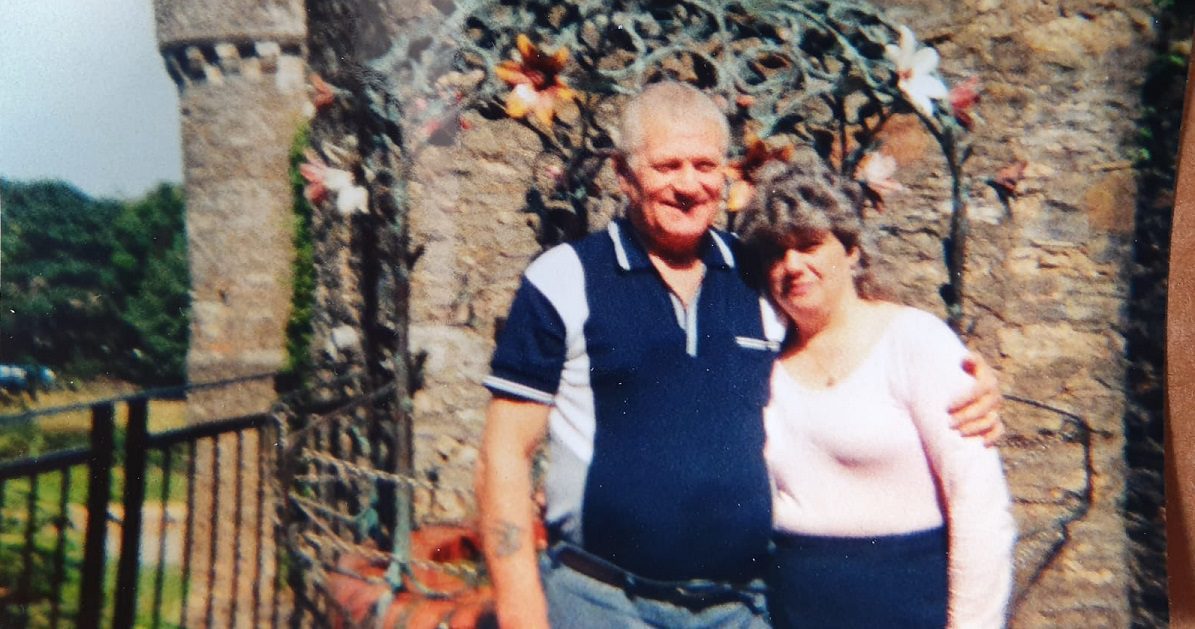 Theresa lost her husband ten years ago. It was an inevitable event due to his illness, but it still came as a shock. The hardest thing Theresa found about the death itself was Ken’s wish to stop any more treatment for his illnesses. He knew he was dying and didn’t want to fight it any more. Although she found that hard, Theresa had no choice but to accept his decision; but she knew her journey of grief was going to be a bumpy one.
Theresa lost her husband ten years ago. It was an inevitable event due to his illness, but it still came as a shock. The hardest thing Theresa found about the death itself was Ken’s wish to stop any more treatment for his illnesses. He knew he was dying and didn’t want to fight it any more. Although she found that hard, Theresa had no choice but to accept his decision; but she knew her journey of grief was going to be a bumpy one.
He knew he was dying and didn’t want to fight it any more
“He wanted me to go on and make a new life for myself,” she says. “He told me, ‘don’t stay on your own’. But I knew from the start when we met that I would never love anyone like I loved him, and that’s probably why I’ve never met anyone else.”
It took Theresa almost two years to even think about sorting through Ken’s belongings; she says herself that she didn’t cope with the grief properly. She threw herself back into work hoping to come through the other side, and never spoke to anyone about how she was feeling.
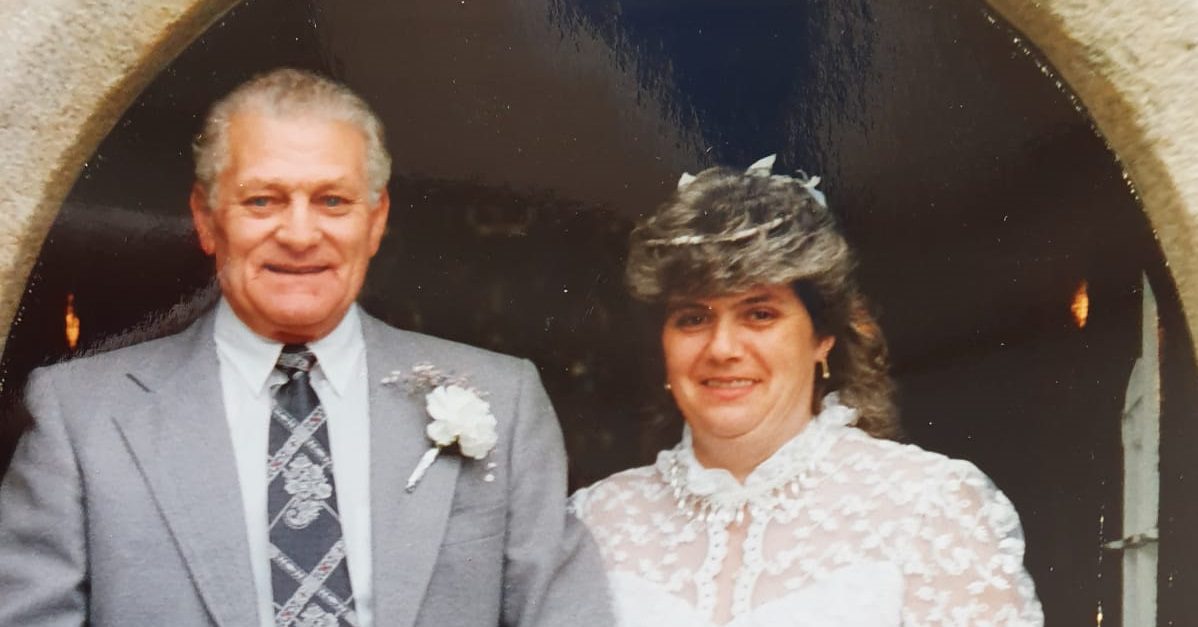
Ken and Theresa on their wedding day
“I was fortunate that I had my son and my three grandchildren – they became my life and my world. I threw myself into doing everything I could for my family; Ken would’ve wanted me to look after them like he would have done.”
The biggest turning point for Theresa was the first time she drove to visit her friends in the next county – a job Ken would always do
After a couple of years, Theresa finally started to do different things. She went on holidays with her family, she started meeting up with her brother for lunches, and she began to see a different side of life, one that wasn’t consumed by grief.
It took six years for Theresa to fully open up to the idea of socialising and meeting up with new people. She began going to shows and dinners with the girls from work, and her social calendar started to grow.
The biggest turning point for Theresa was the first time she drove to visit her friends in the next county – a job Ken would always do. “Driving to visit them on my own for the first time was the biggest thing. Now, I do the three-hour drive to see my granddaughter at university by myself. I’m doing things I never thought I would be able to do.”
While Theresa has now found a fresh perspective and a renewed love for life, it hasn’t always been this easy. After Ken’s passing, her son tried to encourage her to go to bereavement groups, but she felt the pressure of a group was too much. In hindsight, Theresa wishes she could’ve gone to see a bereavement counsellor on a one-to-one basis. She didn’t have the confidence to go to a group, and felt that one-to-one time would’ve made a significant impact on how she coped with the grief.
Going from being in a marriage where they did everything together as a couple, Theresa has now found out that life can still be fun, and that it is possible to do things on your own. While she’s learned this by herself, she says, “I wish I could’ve read a book that said ‘you can go and do things.’ If anyone got me through the loss, it was my son and grandchildren.”
DOROTHY’S STORY
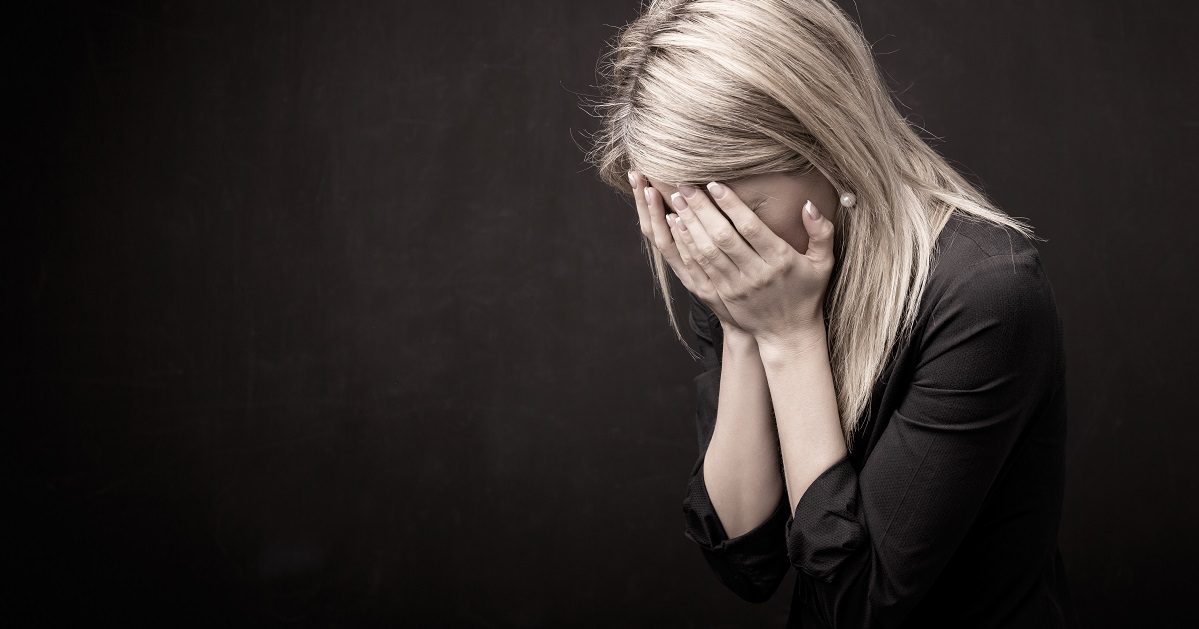
Model, not Dorothy
Dorothy lost her husband 23 years ago, in 1996. It was a completely unexpected loss. She came home from work one day and found her husband laying on the living room floor, and describes the event as “one hell of a shock.” She didn’t return to work for six months after that as the shock proved overwhelming, and she became really ill.
“I lost my confidence, I couldn’t get out of bed, I didn’t want to eat. I didn’t want to do anything. I just didn’t know how I was going to live without him,” she says. For Dorothy, the biggest help came from her grandchildren. With three toddlers and three new babies in the family, she threw herself into helping out with baby duties. She took them to the beach, helped with babysitting and devoted herself to spending time with them.
For her, it was all about the family, claiming simply that, “the children pulled me through it.” And after a certain amount of time, Dorothy began adjusting to her new life without her lifelong partner. By helping out with her grandchildren, there was a new found purpose, something that had to be done.
I lost my confidence, I couldn’t get out of bed, I didn’t want to eat. I didn’t want to do anything. I just didn’t know how I was going to live without him
She joined a group with people around her age, which was a massive help in terms of support and socialising. There was ballroom dancing, trips to the moors and group dinner dates. The initial forced socialising is what made Dorothy realise that there was more to life.
As Dorothy herself said, “there’s no point sitting there staring out the window.” She urged the importance of letting your hair down, painting your nails and making yourself feel nice. The rest will come.
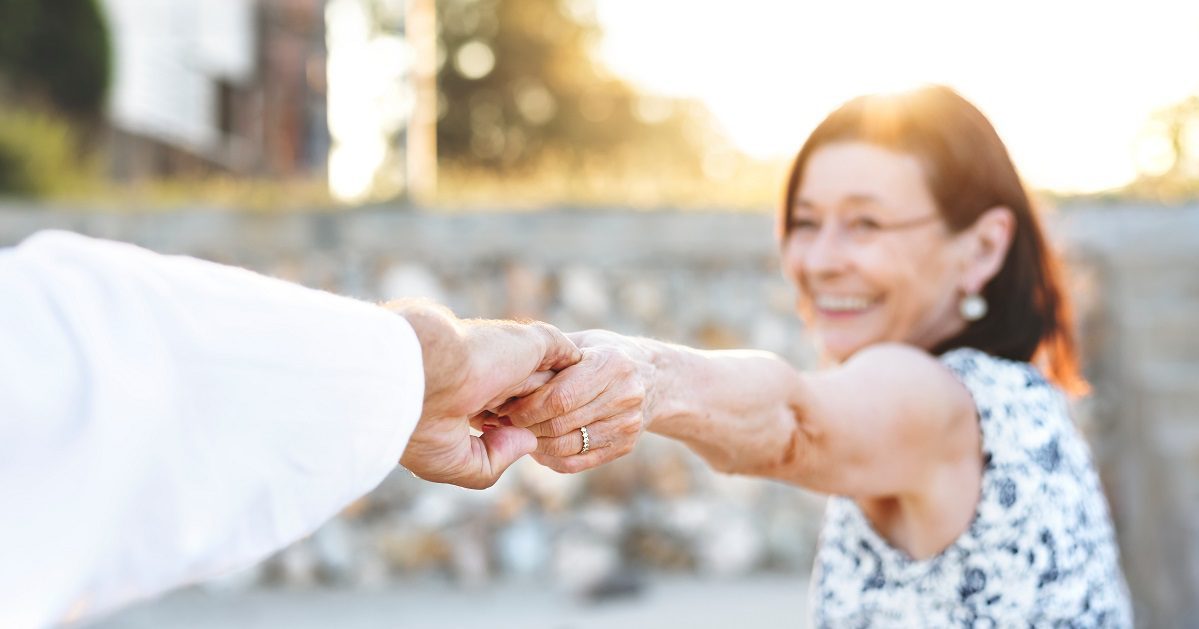
Model, not Dorothy
Despite it being 23 years since her husband passed, she said speaking about it now, it feels like only yesterday that she experienced the worst day of her life. But she has come so far since then, with her grandchildren and new friends at the social club giving her a purpose. And Dorothy wants you to know that there is a light at the end of the tunnel. The years go by, and you never fully get over it – you learn to cope.
But how will you be able to live without your partner? How can you possibly come to terms with the grief? You know they wouldn’t want you to be drowning in misery, so our handy guide is here to match Essinger’s tips for enjoying life on your conditions following the loss of a loved one.
TOP TIPS FOR MOVING ON
Step one: acknowledge and accept your grief
Nothing is more important than acknowledging your grief. It’s a crucial part of the healing process; you can’t begin to move on until you know exactly what it is that you’re moving on from. It’s good to note that there is no time frame for this. Acceptance comes naturally after acknowledgment, but this stage can be harder. It’s all too easy to pretend it’s not happening. It can take days, weeks or months, but once you have accepted the loss, you can learn how to deal with it.
Step two: do what you love
Over the years of your marriage, what you loved turned into what you both loved together, and it can be easy to forget what you enjoyed doing before you met. But now is the chance to really find out what it is about life that you enjoy so much. Life doesn’t have to end here. While you may feel guilty for thinking it, it’s a new chapter. It’s time to focus on you, and you alone. Pick up that book, go for that swim, join that group, go on that holiday. Do what you love.
Step three: focus on family and friends
The key thing here is to remember that people love you, and these people usually come in the form of your family and close friends. For both Dorothy and Theresa, spending time with their families and helping out took away some of the pain and reaffirmed the purpose. These are people that are here for you, they need you and they want you to be okay. Remember, you’re all dealing with it at the same time, just in different ways. The important thing is how to support each other in the process.
You may also be interested to read: The Art of Swedish Death Cleaning

Carly gets to do everything under the sun, including writing, editing, taking photos, creating stories, and swanning around at launches. She can down a glass of Prosecco without pausing for breath, and aims to be the youngest Pulitzer winner ever.

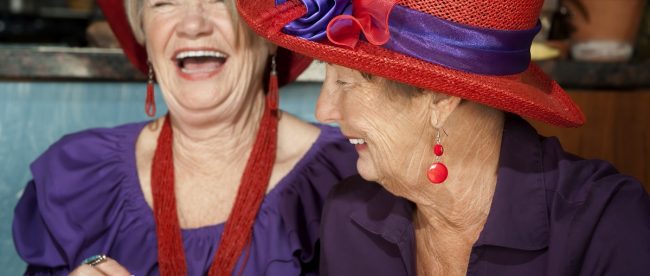

I would like to start a discussion on abuse of older women by their husbands and how it was never spoken about. Not talking about me, my husband was a loving kind human being,but about my mum,now dead of course and how a 70 years old like myself still can’t come to terms with it